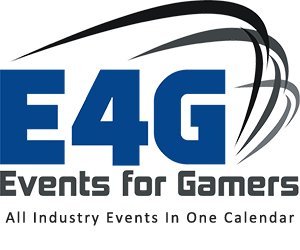In what ways, and at which times, can the interactive entertainment we know and love and a wide range of outcome-based experiences cross paths to create a greater and more meaningful experience? That’s a basic question the upcoming inaugural Intentional Play Summit aims to address, but there’s more to the summit than that. Jen Helms, the founder and chair of the Intentional Play Summit and co-founder of Playmation Studios, offered Events for Gamers an overview about “intentional play” and what to expect at the daylong summit focused on that topic.
Q: What ideas or experiences motivated you to build out the Intentional Play Summit?
A: The goal of this conference is to bring the education, gaming and social good  communities together to figure out how we can make better games for learning and meaningful purpose. Video games have the potential to teach us better than any textbook. To motivate us, to encourage us to live more healthy lives and to learn to empathize and live more compassionately. Video games have this potential because they can engage us in their story and the systems of their worlds in a way that no other medium can. We see shining examples of games that do this well, but as an industry, we still have a lot of unmet potential. I see this conference as a launching point to further build the community around intentional play, to inspire further experimentation and innovation. I also really felt a need to bring the education and gaming communities together. There is a ton for game developers to be exciting about in new types of gameplay that is based in academia, and there is a ton for educational technologists to learn about from the expertise of the gaming community. However, often these two communities work siloed.
communities together to figure out how we can make better games for learning and meaningful purpose. Video games have the potential to teach us better than any textbook. To motivate us, to encourage us to live more healthy lives and to learn to empathize and live more compassionately. Video games have this potential because they can engage us in their story and the systems of their worlds in a way that no other medium can. We see shining examples of games that do this well, but as an industry, we still have a lot of unmet potential. I see this conference as a launching point to further build the community around intentional play, to inspire further experimentation and innovation. I also really felt a need to bring the education and gaming communities together. There is a ton for game developers to be exciting about in new types of gameplay that is based in academia, and there is a ton for educational technologists to learn about from the expertise of the gaming community. However, often these two communities work siloed.
Q: Can you explain “intentional play” and compare and contrast it with the concept of “edutainment”?
A: I personally hate the term “edutainment.” Edutainment to me signifies that a game is educational but not to worry, it is also entertaining. The truth is, learning is fun! As Raph Koster taught us over a decade ago, games are fun precisely because we learn when we play. The brain has a voracious appetite for patterns. The problem is, far too often, learning games are created that have educational elements melded onto an unrelated game mechanic. When we do that, the learning is no longer as deep and we lose the value that video games offer. Video games give us the ability to immerse a player in a world that they can discover through exploration and intentional play. We can immerse players into the systems of academic subjects to discover them on their own. We can immerse players in deeply emotional experiences that can inspire new thoughts and behavior. The Intentional Play Summit is very much about intentional design and how we can create the types of experiences that can inspire the type of learning and change we hope to see.
Q: What are the most important topics in the field of intentional play, and how does this summit address them?
A: The big idea of the conference is that great game design and educationally, emotionally and socially enriching experiences go hand in hand. We’re going to have some speakers address that at a high level, including a panel Designing for Intentional Play with Robin Hunicke, John Krajewski, Katherine Isbister and Jamin Warren. We’ll have sessions exploring what that looks like for particular issues like climate change and health or new technologies like VR. Building a meaningful game is the first step, but then you need to figure out a way to build a business so we have sessions that address those practical realities as well.
Q: What main learnings do you hope attendees will take away from the Intentional Play Summit?
A: We have incredible speakers that are at the forefront of this field. We have keynotes from Noah Falstein, chief game designer at Google, who brings the perspective of a large tech company that is innovating in both education and games. James Paul Gee is a world-renowned expert on video games and education and provides a researcher’s perspective. We then have amazing speakers that know great game design and understand the need for learning to happen through games; CEOs that understand what it takes to build a business in this space. We also have leaders in education that have founded innovative schools with a focus on learning through play. We have others that are experts in new technologies like AR and VR. What makes this conference so special is how many incredible people will be in the room. What attendees will take away is new knowledge, new connections. This will give them, I hope, the inspiration and foundation to innovate in this field.
Q: Besides your summit, what other resources on intentional play would you recommend interested folks check out?
A: The best foundational books I would recommend are “A Theory of Fun for Game Design” by Raph Koster, “The Art of Game Design: A Book of Lenses” by Jesse Schell (just because it is a great book on game design) and “What Video Games Have to Teach Us About Learning and Literacy” by James Paul Gee.
Then I would recommend playing some great games in this space. We learn so much by playing good games. “Eco” by Strange Loop Games is one I often point to. Also, any of the games that we selected for the arcade would be a good choice. Some of them aren’t available yet, but many of them are.
Thanks again to Jen Helms for taking time to explain what the Intentional Play Summit is all about. The Intentional Play Summit will be October 7, 2016, at the Computer History Museum in Mountain View, California, with attendee discounts available for teachers and indie developers.



